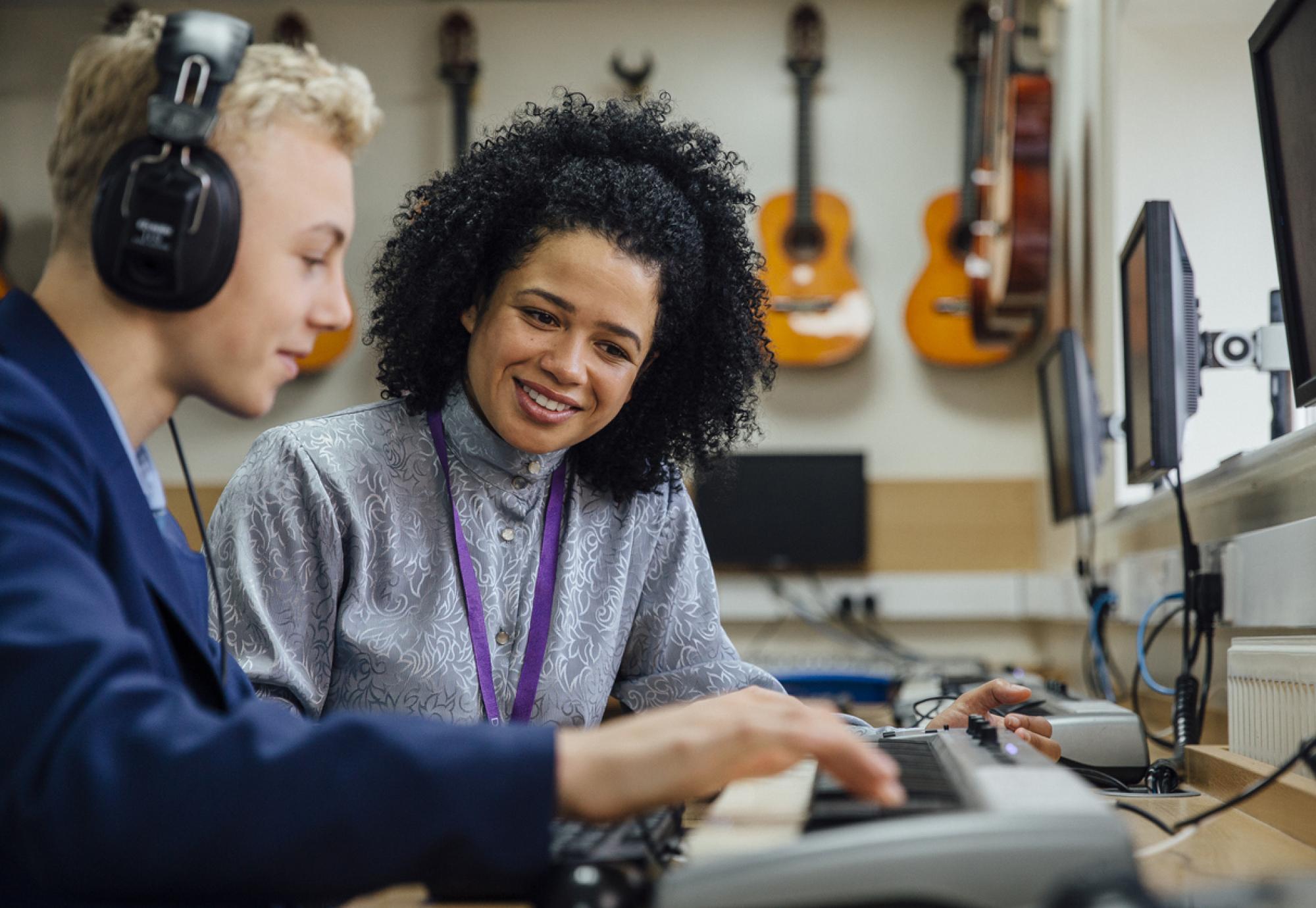The government have released a new plan for music education, which looks to give children the skills needed to make music for enjoyment or for a career.
The government’s vision aims to allow all children to learn instruments or singing, as well as allowing them to continue to develop their skills and interest, with the potential of taking it to a professional level. This will involve all children and young people being able to:
- Experience a musical culture whilst in education and have the ability to progress into related qualifications
- Have access to instruments, technology, expertise, and facilities needed to learn, create, and share music
- Have the ability to engage with a range of opportunities to play, sing, and perform as well as create and experience live music, whilst giving them the opportunity to have their music heard
- Have the chance to progress their interests and talents into musical careers
- Access support by a skilled and dynamic workforce
The plan also intends to ensure that musical education is completely inclusive which means that educators are expected to:
- Commit to increasing access and opportunity in musical education
- Identify and remove any barriers, including those for children in low-income households and those with special educational needs and disabilities
- Support the increasing access, opportunity, participation, and progression of under-represented groups in music
- Understand how music education and skill development can be inclusive among teachers, tutors, practitioners, and leaders
With different aims to achieve more success, the plan is split into three goals. The first goal is that all children and young people are to receive a high-quality music education in their early years and in schools. This will be done by not only making sure that children are offered a strong musical grounding up to the age of five, but also the promotion of a broad musical culture. All primary and secondary schools are expected to deliver a high-quality music curriculum that reflect the breadth and ambition of the national curriculum, with these expectations also applying to special schools and alternative provision settings. The plan also looks to ensure that not only are staff supported by ensuring that they have appropriate skills as well as music being represented in every school’s leadership structure, with a designated lead or head of department at school or academy level for both primary and secondary schools.
The second goal of the plan is to make sure that music educators are working in partnership and with all children and young people’s needs and interests as a priority. Strong partnerships thanks to a refreshed Music Hub programme will help to build a vibrant and sustainable offer of music education around the country. Schools, academy trusts and Hubs will work together to improve the quality and breadth of music education for all children and young people, whilst music and arts organisations, alongside the music industry, will contribute to music education by acting as partners for Hubs. This will help them to work alongside education settings at local, regional, and national level. Technology will also be a focus of the second goal, with music educators expected to have a strong understanding of the role in technology in the teaching of music. This includes the use of technology as a creative tool, as well as being able to enhance teaching and making music more accessible and inclusive.
The final goal of the new plan is to ensure that all children and young people with music interests and talents have the chance to progress, including the opportunity to progress professionally in the music industry. This will be done by making sure that schools and trusts have clear approaches to supporting their pupils to progress music through and beyond what is taught on the curriculum. This includes opportunities to study for qualifications such as graded exams, GCSEs, and A levels, as well as vocational and technical qualifications. Music Hubs will work proactively with schools and trusts (where relevant) to help support children’s progress with opportunities that are suited to their needs, ambitions, and interests. All educators, including those in further and higher education will also be expected to assist young people with the understanding of how they can get into musical careers, as well as wider creative industries.
Robin Walker MP, Minister for School Standards and Lord Parkinson of Whitley Bay, Minster for the Arts, say in the ministerial foreword:
“This country has a proud history of musicmaking. Down the generations, music has enriched our national identity, our community, and our economy. Music education is essential to safeguarding and extending the musical life of our country for generations to come.
Excellent music education opens opportunities, but it is not simply a means to an end: it is also an end in itself. It gives children and young people an opportunity to express themselves, to explore their creativity, to work hard at something, persevere and shine. These experiences and achievements stay with them and shape their lives.
That is why music is an essential part of a broad and ambitious curriculum for all pupils. It must not be the preserve of the privileged few. Music should be planned and taught as robustly as any other foundation curriculum subject, as exemplified in the Model Music Curriculum we published last year.”
The Music Hub programme will be opened up to competition, much like the introduction of the first hubs following the original National Plan for Music Education in 2011 and the progress of the plan will be monitored by a board that will work alongside the government to establish an impact framework to help measure its success and ensure that everything set out in the plan is delivered effectively. More details about the way that the plan will be monitored are expected to be published towards the end of 2022.



















